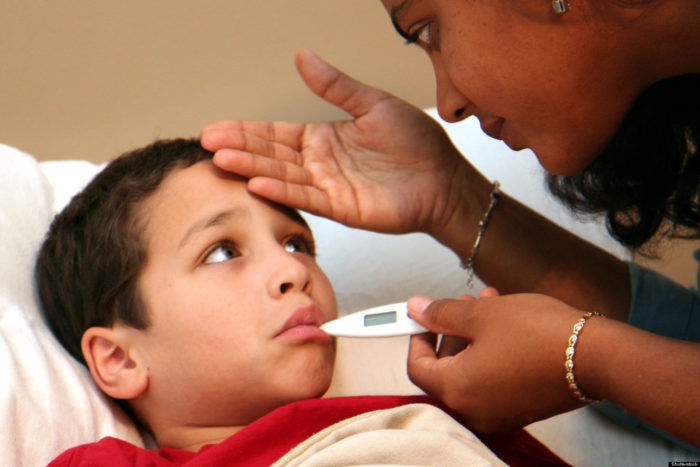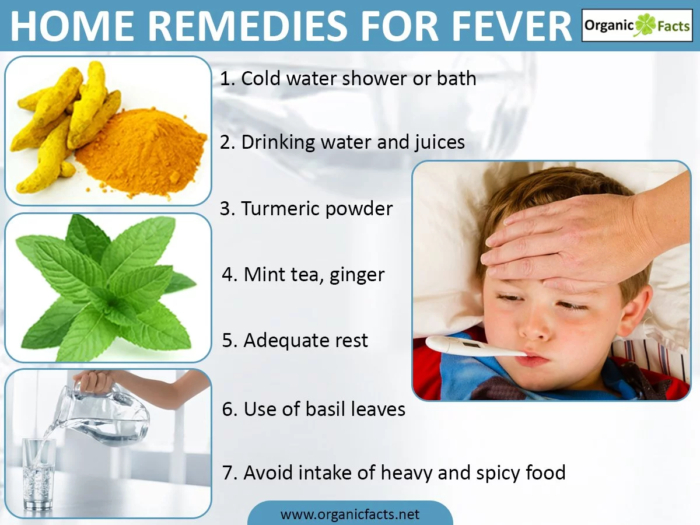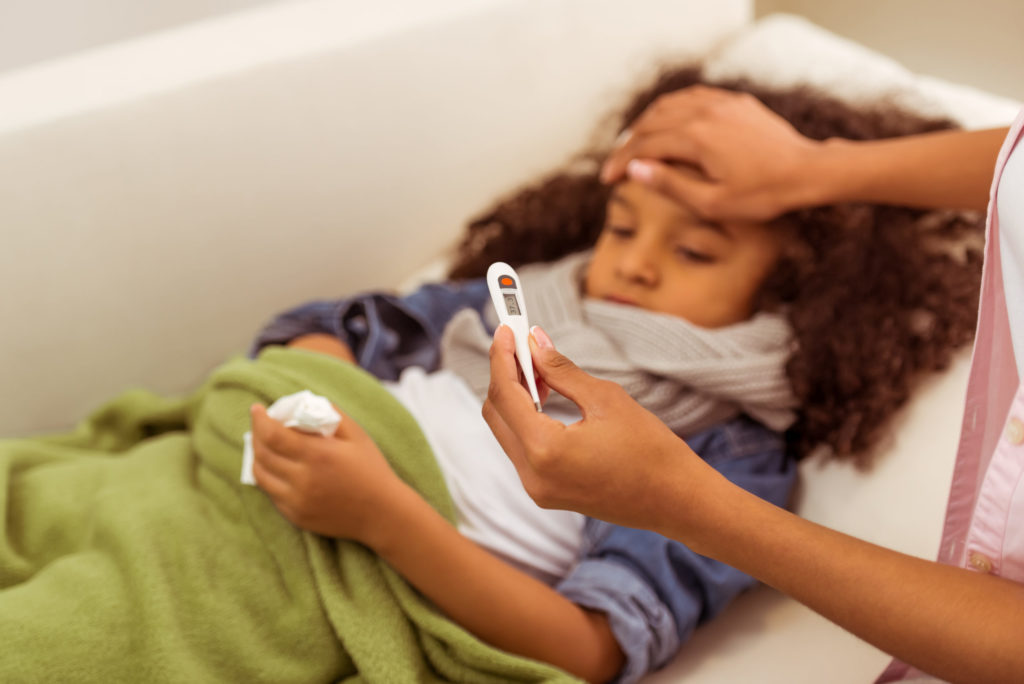It’s a perplexing situation when a child has a fever. The sudden spike in body temperature can leave parents feeling overwhelmed and uncertain about what to do next. Fevers in children can stem from various factors ranging from viral or bacterial infections, immunizations, to even teething! However, it’s important for parents to realize that fevers themselves are not an illness but rather indicative of an underlying condition.

Treatment options for fevers in children include medication such as ibuprofen or acetaminophen which help lower the temperature and alleviate discomfort. But here’s the kicker – you must follow dosage instructions carefully and never administer aspirin to children with a fever due to its potential for serious health complications.
The ability to accurately measure body temperature using a thermometer is crucial when monitoring fevers in children. Parents should always have access to an accurate digital thermometer at home and be knowledgeable on how best to use it. If your child is under two years old or if their high temperature persists for more than three days despite treatment, seek medical attention immediately as these could be signs of serious illness requiring prompt intervention from healthcare professionals.
How to treat a fever in children: Medications and home remedies
Treating a child’s fever can be a perplexing task, requiring prompt and effective action. The first step is to accurately measure their body temperature using a thermometer – but which type to use? For young children, rectal thermometers are considered the most accurate while older children may benefit from oral or ear thermometers.

Once you’ve confirmed your child has a fever, over-the-counter medications such as Tylenol or Motrin can provide relief from discomfort by reducing their temperature. But hold on! It’s crucial to consult with your pediatrician before administering any medication – safety and proper dosage are paramount.
But wait, there’s more! Home remedies also exist that may help alleviate your little one’s fever. From keeping them hydrated with fluids like water or electrolyte drinks to applying cool compresses to their forehead or neck and ensuring they get plenty of rest – it all adds up in the fight against fever. However, keep watch for any signs of serious illness like difficulty breathing or dehydration; medical attention should be sought if necessary.
Remember: fevers often result from viruses like COVID-19 or the common cold, so don’t panic if recovery takes 3-5 days. If further concerns arise about treating your child’s fever effectively, reach out without delay to your trusted pediatrician who will offer guidance tailored specifically for them!
The importance of measuring body temperature accurately
The task of accurately measuring a child’s temperature is of utmost importance in determining the severity of their fever and corresponding treatment. A spike in body heat can often signal an underlying infection or illness, but it is crucial to note that not all fevers are detrimental to one’s health. In fact, elevated temperatures may be a natural response from the body as it wages war against invading pathogens.
Parents must exercise great care when selecting a thermometer with which to gauge their child’s temperature effectively. The most commonly used thermometers include digital models, ear probes, and forehead scanners. Following instructions meticulously while using any type of thermometer ensures precise readings that aid in proper diagnosis and course-of-action decisions.
Should your child exhibit symptoms consistent with high fever levels, seeking medical advice from qualified pediatricians or visiting pediatric clinics immediately cannot be emphasized enough. High fevers pose serious threats to children’s overall well-being and may lead to severe complications like brain damage if left untreated. Although medication can help temporarily reduce spikes in body temperature, they do little towards addressing root causes.
In conclusion, ensuring accurate temperature measurements for your precious ones plays an indispensable role in managing their health effectively. Parents should keep vigilant watch over signs pointing towards serious illnesses requiring immediate attention regardless of whether thermometer readings at home register high or low values. Knowing how and when to use medications like aspirin or other remedies depends on age-specific factors coupled with other present symptoms – always seek expert guidance from healthcare professionals who understand your unique medical history!
When to seek medical attention for a child with a fever
Should your little one appear sluggish or unresponsive, it is imperative to seek out the aid of medical professionals posthaste. This could be indicative of a grave ailment that calls for prompt attention. In addition, if your youngster experiences seizures or breathing difficulties as a result of their fever, you must not wait to act and instead seek immediate medical assistance.
When administering medication to alleviate fevers in children aged three months or older, it is crucial that you adhere scrupulously to the recommended dosage instructions and restrict yourself solely to acetaminophen or ibuprofen. Under no circumstances should aspirin be administered as this can give rise to serious health complications like Reye’s syndrome.
The severity of an illness cannot always be gauged by the height of the fever alone. However, if your child’s temperature remains high for more than seventy-two hours or they begin exhibiting additional symptoms such as vomiting and diarrhea, make sure that you consult with your pediatrician at once so they can evaluate further treatment options available. Always remember that while medicine may help mitigate feverish symptoms somewhat; ultimately our bodies’ immune systems are what enable us to combat infections and recover from illnesses.
The role of pediatrics in managing fevers in children
The role played by pediatricians in managing fevers in children cannot be overstated. They are the gatekeepers of knowledge when it comes to understanding the root cause of a fever and providing guidance on how best to treat it. However, one must wonder – what is the most accurate way to measure a child’s temperature during such an episode? There are options, ranging from digital thermometers, forehead strips for infants and young children, as well as oral or ear thermometers for older kids.
When a child’s temperature reaches 102°F or higher, parents must spring into action with great haste. The recommended course of action includes administering medication like acetaminophen or ibuprofen as directed by one’s trusted pediatrician while also employing home remedies like cool compresses or sponging with lukewarm water. It is important to note that aspirin should never be given under these circumstances due to its association with Reye’s syndrome which can lead to brain damage.
Furthermore, recognizing signs that indicate serious illness such as difficulty breathing, severe headache, stiff necks coupled with confusion or seizures requires sharp attention from parents who should seek medical attention immediately if any of these symptoms appear alongside high fever episodes. In addition to medication and home remedies such as liquids and rest which help fight off infection causing fevers; health tips abound including frequent hand washing and avoiding contact with sick people which can go a long way towards preventing infections that lead up to fevers in children!
Common viruses and illnesses that cause high fevers in children
The complexity of childhood fevers can leave parents feeling perplexed and overwhelmed. With a myriad of potential causes, ranging from the flu to strep throat, it’s difficult to pinpoint exactly what is causing your child’s temperature to spike above 100°F. Yet, despite this confusion, one thing remains clear: fevers are an indication that the body is fighting off infection.
However, when a fever reaches dangerous levels – such as over 108°F or accompanied by severe dehydration or difficulty breathing – seeking medical attention immediately becomes crucial. A pediatrician may prescribe medication to help combat the illness at hand.
For those treating their child’s fever at home, measuring body temperature accurately with either a digital thermometer or temporal artery thermometer is essential. Additionally, ensuring that medications like acetaminophen or ibuprofen are given in correct doses based on age and weight guidelines provided by healthcare professionals can aid in reducing symptoms and promoting recovery. It’s important for parents to note that aspirin should never be given to infants or toddlers with a fever due to its connection with Reye Syndrome.
Despite these complexities surrounding childhood fevers and their causes, understanding how they occur can empower parents in managing their children’s health during times of illness. By monitoring temperatures closely and taking timely action when necessary, parents play an active role in promoting good health for their little ones.
The dangers of giving aspirin to children with a fever
The notion of administering aspirin to feverish children may seem like a logical option, but the implications are far more serious than one might initially think. The connection between aspirin and Reye’s syndrome is not to be taken lightly as this condition can prove fatal by attacking both the liver and brain. Therefore, parents must exercise caution and avoid giving their child aspirin if they present with viral symptoms.
Fevers in children are often indicative of an ongoing war against bacteria or viruses within their bodies. With normal body temperatures ranging from 97°F to 100.4°F, anything above that threshold constitutes a fever which may pose additional risks for younglings under two years old who could experience seizures if their temperature exceeds 104°F.
To combat fevers in children effectively, it is vital that parents keep them hydrated by encouraging fluid intake such as water, clear broths, or electrolyte solutions (without mentioning brand names). Additionally, acetaminophen (paracetamol) remains a viable option for reducing fevers in kids over two years old unless they possess allergies or sensitivities towards the medication. However, should a child’s temperature reach beyond 103°F despite taking acetaminophen (paracetamol), immediate medical attention becomes necessary.
Parents need to recognize that giving aspirin to feverish children can have severe consequences like Reye’s syndrome while prioritizing hydration efforts through proper monitoring methods like digital thermometers instead of relying on guesswork or environmental factors leading towards exacerbated symptoms. In cases where headaches persist at extreme levels or temperatures exceed manageable ranges even after medication administration has occurred; seeking professional help from qualified healthcare providers specializing in pediatric care management would be highly recommended without hesitation given how common bacterial/viral infections remain among infants/young children experiencing high fevers
Health tips for parents to help their child fight off infections and reduce fever
The perplexing truth is that parents must take measures to combat infections and fevers in their child. A fever in young infants can often indicate a deeper illness, which needs immediate attention. Monitoring your baby’s temperature regularly, especially during the late afternoon when temperatures tend to spike, is crucial.
To reduce a child’s fever, parents can adjust the thermostat or use lukewarm water for sponging. However, using cold water or ice could cause permanent damage to the skin – an unforeseen burst of danger! In hot weather conditions, ensuring your child drinks plenty of fluids and avoiding overdressing them helps keep them comfortable.
If your child experiences trouble breathing or if their body temperature reaches 37.5°C or higher – it’s time to seek medical attention! Other signs of serious illness include lethargy, dehydration and vomiting & diarrhea – enough to stir confusion and concern!
It’s always better to err on the side of caution when it comes down to a sick child’s health; remember these tips are general guidelines only- they do not replace professional medical advice from a pediatrician or healthcare provider. By taking proactive steps at home and seeking timely medical care when necessary, parents can help keep their children healthy amidst periods of illness- now there’s something that will leave you feeling both curious and satisfied!

